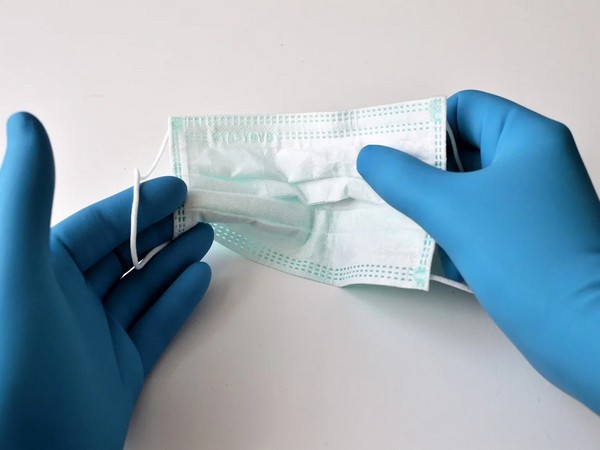Fines for not wearing masks, discounts for shopping during lean hrs among Centre's SOPs for markets
Imposing fines for not wearing masks or not following physical distancing, opening markets on alternate days and closing them if large number of coronavirus cases are reported, are among the measures recommended by the Centre to ensure compliance to COVID-appropriate behaviour in markets.

- Country:
- India
Imposing fines for not wearing masks or not following physical distancing, opening markets on alternate days and closing them if large number of coronavirus cases are reported, are among the measures recommended by the Centre to ensure compliance to COVID-appropriate behaviour in markets. The standard operating procedures for markets issued by the Union Health Ministry on Monday to contain spread of coronavirus infection, stated that online booking of groceries and doorstep delivery of those must be encouraged while incentives or discounts for those who shop during non-peak hours may be considered.
The SOPs outlined that market places in containment zones shall remain closed. Shop owners and employees living in containment zones shall not be allowed entry into marketplaces, it stated. According to the SOPs, COVID-appropriate behaviour in marketplaces may be regulated by market associations through a number of measures, including creation of a sub-committee for each market to facilitate and monitor implementation of such behaviour in marketplaces.
It also suggested setting up mask dispensing kiosks at government-approved rates at entry points of markets and parking lots, establishing hand washing stations in public utility areas while recommending use of foot operated taps and contactless soap dispensers. It also sought for providing mass thermal screening provisions at the entry and access points to the market, procuring thermal guns, sanitizers, disinfectants for sanitization of public utility areas and placement of IEC materials and signages regarding COVID appropriate behaviour in prominent locations. "Where self-regulatory approach fails or lacks impact, the planning shall also entail taking enforcement actions, wherever warranted. This may include levying of fines/penalties on defaulters for not wearing mask/face cover, or for not following physical distancing norms. "Exploring the option of allowing markets/shops to open on alternate days and closure of markets in case larger number of cases are getting reported which are found to be having epidemiological links with the market by the administration," the SOPs stated.
The ministry said market places are visited by a large number of people. With gradual opening of economic activities, markets are witnessing high footfalls, it said. "Such large gatherings, without observance of COVID-19 appropriate behaviour have the potential to spread coronavirus infection," the SOP document stated. It also suggested strategies that can be worked out by the law enforcing agencies in collaboration with market associations to manage crowd such as engaging civil defence volunteers, home guards and volunteers to regulate crowd, accessing control at parking lots for limiting vehicle entry and exploring staggered time of shops and utilities, thereby allowing them to remain open for longer duration.
"Crowd density does not remain the same throughout. It usually peaks during evening hours on weekdays. On weekends and holidays, marketplaces are crowded for most of the day till late in the evening. Planning should specifically factor-in requirement for these peak days/hours," the document noted. According to the guidelines, at the entry point of shops, all employees and visitors should undergo mandatory hand hygiene and thermal screening and only asymptomatic employees and visitors shall be allowed inside shops while a face-cover or mask has to be worn at all times inside and outside shops.
To prevent the risk of transmission of coronavirus, it is crucial that healthy environment is maintained at marketplaces, the SOPs said and recommended sanitization by shop owners prior to resumption of daily activities. Market associations shall facilitate maintaining healthy environment of public utility areas and open spaces through their own means and through local urban bodies and civic agencies.
(This story has not been edited by Devdiscourse staff and is auto-generated from a syndicated feed.)










